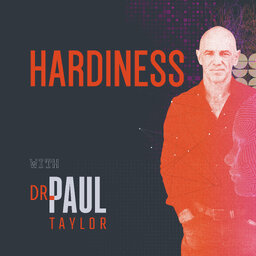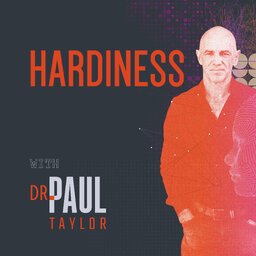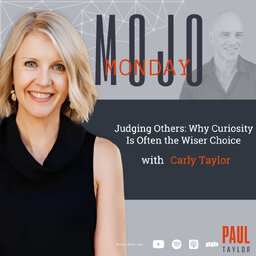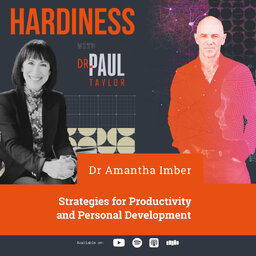How to Build a Thriving Workplace in 90 Days Using Character-Based Leadership with Jason Silver
In this episode of The Paul Taylor Podcast, I sit down with Jason Silver, author of "Your Grass is Greener," for a masterclass in building thriving workplaces and meaningful careers. Drawing from his extensive startup experience and behavioural science background, Jason challenges conventional wisdom about leadership, revealing why hiring for character trumps skills and how excessive consensus-seeking can paralyse organisations. We explore fascinating personal experiments in mindfulness and productivity, dissect the subtle ways workplace decisions go wrong, and uncover how giving people true autonomy can transform both results and job satisfaction. Whether you're leading a team, building a company, or seeking more fulfilment in your career, this conversation offers evidence-based insights and practical strategies for creating better outcomes at work and in life.
Key Topics:
-
Start-up Wisdom: What works and what doesn't in growing companies
-
Character-Based Leadership: Why values matter more than skills
-
Personal Development Experiments: Learning from personal experiments and failures
-
Mindfulness Practices: Making meditation and journaling work for you
-
Workplace Decision-Making: Moving past endless meetings and consensus
-
Professional Autonomy: Letting people choose how they work best
-
Behavioural Science in the Workplace: How our brain affects workplace choices
Key Takeaways:
-
Choose people based on who they are, not just what they can do. Remove those who don't match your values quickly.
-
Don't wait for everyone to agree. Have healthy debates, make clear choices, and move forward.
-
Write down your goals each morning and reflect on your day each evening.
-
Look out for people who say they support decisions but don't follow through with actions.
-
Give your team freedom to choose how they complete tasks, rather than controlling every step.
-
Try to find information that challenges what you think you know, rather than just confirming it.
-
Make people and culture your top priority, not just an afterthought.
Connect with Jason Silver:
Learn more about Jason Silver
Jason Silver on LinkedIn
Jason Silver on Substack
Jason Silver's Book
Connect with Paul Taylor:
Learn more about Paul Taylor
Paul Taylor on LinkedIn
Paul Taylor on Instagram
Paul Taylor on YouTube
Support the Podcast:
If you found this episode valuable, please consider subscribing, rating, and leaving a review on your preferred podcast platform. Your support helps us reach more people with important conversations like this one.
Share this episode with someone who might benefit from hearing it—emotional eating is more common than we think, and this conversation could make a difference in someone's life.
 Hardiness with Dr Paul Taylor
Hardiness with Dr Paul Taylor


